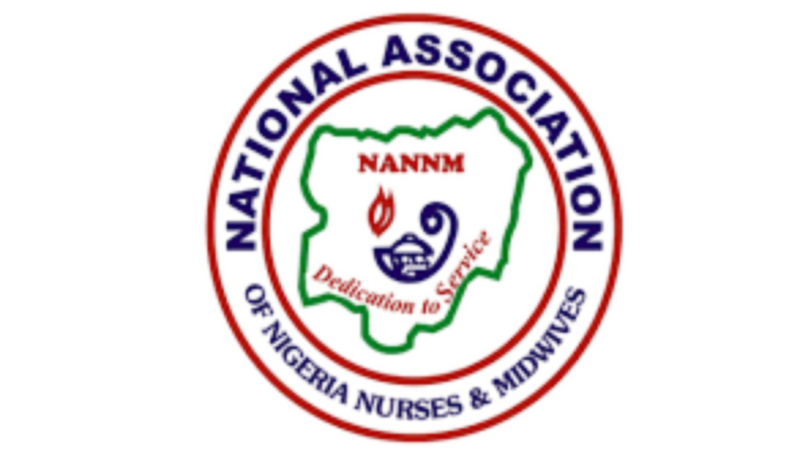Healthcare services across Nigeria are set to face significant disruption from Wednesday, July 30, 2025, as nurses under the National Association of Nigeria Nurses and Midwives, Federal Health Institutions Sector (NANNM-FHI), begin a seven-day nationwide warning strike.
The strike will impact 74 federal hospitals, along with various state hospitals and primary healthcare centres across all 36 states and the Federal Capital Territory.
The industrial action is in protest against poor remuneration, staff shortages, unpaid allowances, and unsafe working conditions. It is expected to paralyze services at teaching hospitals, federal medical centres, specialist hospitals, and general health facilities nationwide.
The association had issued a 15-day ultimatum to the Federal Government on July 14, 2025, demanding urgent intervention to address their grievances. However, the nurses say no steps have been taken by the government to initiate negotiations.
Speaking with our correspondent on Monday, the National Chairman of NANNM-FHI, Morakinyo Rilwan, said some of the long-standing demands include an upward review of shift allowance, an increase in uniform and core duty allowances, a separate salary structure for nurses, mass recruitment, and the creation of a dedicated nursing department within the Federal Ministry of Health.
"The strike in question is inevitable as the Federal Government or the Federal Ministry of Health remains adamant," he said.
"Right now, nurses are lumped together with other health workers on the same salary scale. There's no special consideration for the unique work nurses do. We want a dedicated salary structure that reflects our profession and contribution. We are not just like every other health worker. We deserve our salary scale."
Rilwan decried the working conditions and unfair allowances given to nurses, despite their 24-hour shift schedules.
"Nurses are the only professionals who work round-the-clock shifts. Night shifts are even more demanding and dangerous now due to security concerns."
"We are supposed to receive 30 percent of our basic salary as shift allowance, as stated in a 2009 circular, but they’re only getting 6.8 percent, the same as a gate man running shifts. It’s unfair. We work the longest hours with patients, and yet they give us crumbs."
He also criticized the outdated uniform allowance, saying it has remained stagnant for over two decades.
"Nurses get N20,000 per year for uniforms, a figure that has not changed in over 20 years, even though nurses wear white uniforms that get stained easily and need constant replacement."
"We wear full uniforms, and we sometimes need several per week. N20,000 can’t buy enough for a year anymore. Meanwhile, lab coat allowances for doctors and others were recently reviewed, but nurses were left out."
Rilwan called for the core duty allowance to be raised from 1.7 percent to 4 percent and expressed concern that the nursing profession is being sidelined within the health ministry.
"Currently, a director reports to another director from a different department, which undermines the profession. We want a proper Department of Nursing, led by a full-fledged director, not sidelined under someone else."
He added that although a nursing scheme of service was approved and circulated in 2016, it is still not being implemented.
"We’re not asking for a new document. Just implement the one already approved."
On the lack of essential medical supplies, he said:
"Nurses are still working in hospitals with no gloves, syringes, or gauze. They’re forced to improvise, which puts their lives and their health at risk. We save lives even with nothing. Imagine how much more we can do if we’re properly equipped."
He also addressed the nursing workforce gap:
"The government keeps saying there’s a nursing shortage, but Nigeria produces over 10,000 nurses annually. Many are underemployed, working in private hospitals for peanuts or on temporary locum contracts in government facilities. We have enough nurses. They just don’t employ or pay them well, that’s why they leave."
Rilwan further demanded the reconstitution of the Nursing and Midwifery Council Board, which has remained dissolved for over four years.
Highlighting the scale of the upcoming strike, he said:
"This includes 74 federal hospitals, teaching hospitals, federal medical centres, specialist hospitals like orthopaedic, neuro-psychiatric, and eye centres, as well as all general hospitals and primary healthcare centres in the 36 states and the Federal Capital Territory, and 774 local government areas."
Also speaking, the National Public Relations Officer of the union, Omomo Tibiebi, said the strike would be total, with no services offered at any level, including emergency care.
"There will not be emergency services. The strike is total, and there will be no skeletal services. The 15-day ultimatum ends by Tuesday, July 29, 2025, by midnight, and the warning strike commences on Wednesday, July 30, 2025, at 12:01 a.m."
(punch)


